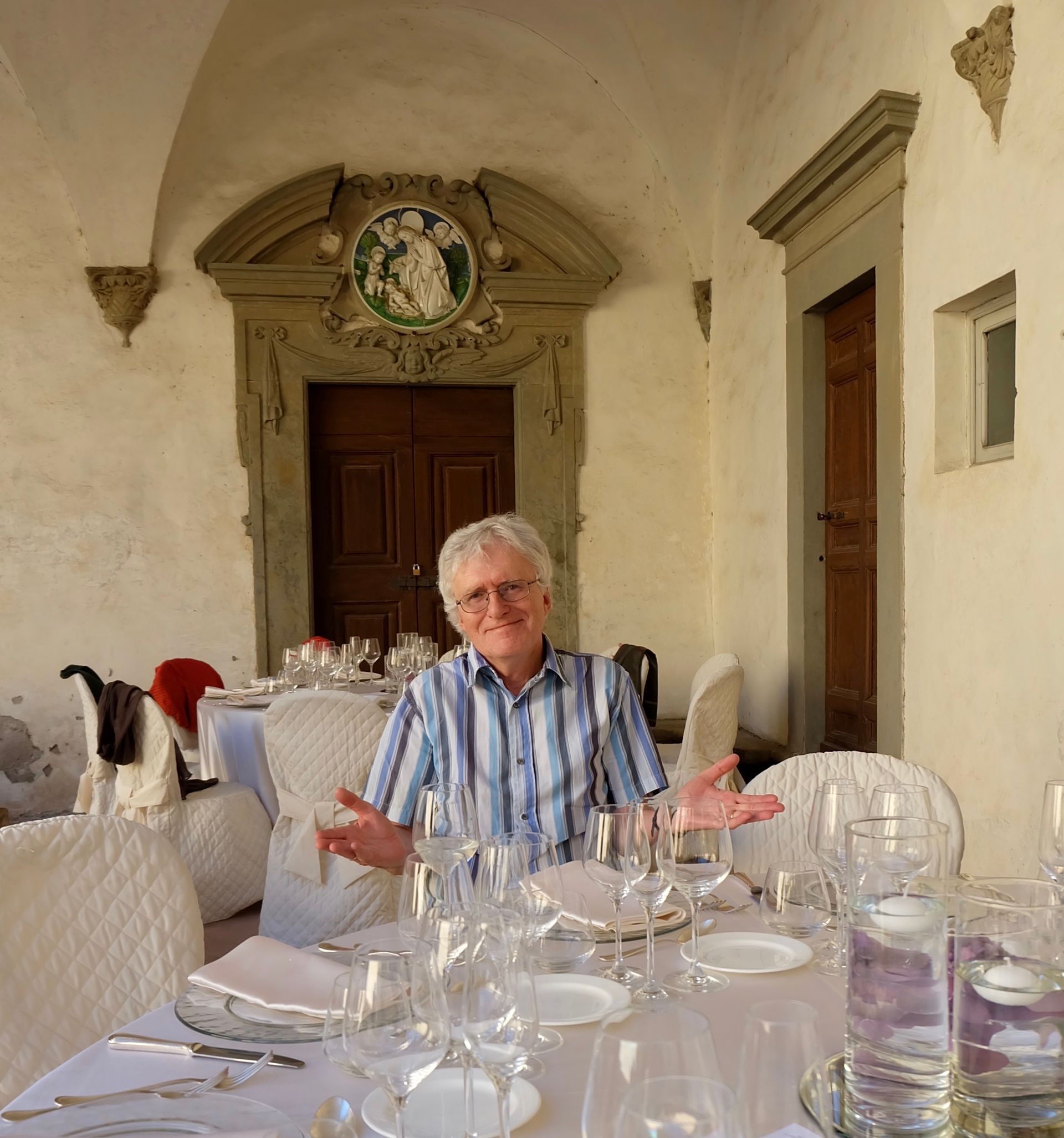Diego Marani on language addiction
Brigid Maher La Trobe University
Last week Diego Marani, novelist, translator and inventor of Europanto, spoke to a capacity audience at the Italian Cultural Institute in Melbourne about how he got hooked on languages.
Diego Marani in Melbourne
In a conversation about language, identity and what it means to be European, he discussed the way his writing explores the question of multilingualism, an important issue in an expanding and globalized Europe. Diego Marani has dedicated much of his life to studying languages, both for professional purposes – he worked as a translator and interpreter for the European Commission, where he is now multilingual policy officer – and per diletto . Once he started learning languages, he couldn’t stop. The rush he felt upon being able to adopt a new identity along with the unfamiliar sounds, structures and meanings of a new language soon became something he couldn’t do without.
Yet Diego still describes himself as very definitely Italian, and even from his home in Brussels, he has been careful to maintain his local dialect (he hails from Tresigallo, in the province of Ferrara), which expresses yet another of his multiple identities.
The interplay between language and identity is at the heart of the two novels that Text has recently published in English translation, New Finnish Grammar and The Last of the Vostyachs (trans. Judith Landry).
Nuova grammatical finlandese ( New Finnish Grammar ) is an ode to the Finnish language, as the protagonist – a soldier who has lost his memory and identity – tries to reconnect with his past by painstakingly (re-)learning this notoriously difficult language from scratch. Diego talked about his own struggles to learn this troublesome, declension-rich tongue.
The crowd at the Italian Cultural Institute
The exquisite L’ultimo dei vostiachi ( The Last of the Vostyachs ) explores the tragedy of language death, while also showing how languages can live on in unexpected ways, even after all their speakers have died out. (It is also a delightful satire of academia and especially of historical linguistics.) As Diego explained in our conversation, languages never really die; some trace of them always remains.
Diego also spoke about Europanto, a language of his own invention, and in a short address showed the audience that finally a language has come along that anyone can speak, because “in Europanto existe keine mistakes porque Europanto esse eine single grosse mistake!”
Diego Marani’s talk was co-presented by AALITRA , the Italian Cultural Institute Melbourne and Text Publishing. You can listen to the full recording here.










